- News
- Reviews
- Bikes
- Accessories
- Accessories - misc
- Computer mounts
- Bags
- Bar ends
- Bike bags & cases
- Bottle cages
- Bottles
- Cameras
- Car racks
- Child seats
- Computers
- Glasses
- GPS units
- Helmets
- Lights - front
- Lights - rear
- Lights - sets
- Locks
- Mirrors
- Mudguards
- Racks
- Pumps & CO2 inflators
- Puncture kits
- Reflectives
- Smart watches
- Stands and racks
- Trailers
- Clothing
- Components
- Bar tape & grips
- Bottom brackets
- Brake & gear cables
- Brake & STI levers
- Brake pads & spares
- Brakes
- Cassettes & freewheels
- Chains
- Chainsets & chainrings
- Derailleurs - front
- Derailleurs - rear
- Forks
- Gear levers & shifters
- Groupsets
- Handlebars & extensions
- Headsets
- Hubs
- Inner tubes
- Pedals
- Quick releases & skewers
- Saddles
- Seatposts
- Stems
- Wheels
- Tyres
- Health, fitness and nutrition
- Tools and workshop
- Miscellaneous
- Tubeless valves
- Buyers Guides
- Features
- Forum
- Recommends
- Podcast
feature
Cycling survival — 13 beginner mistakes to avoid
We were all beginners once and we all made mistakes. In the hope of helping new riders avoid the biggest errors, here's a baker's dozen blunders that you should steer clear of.
Wrong saddle height
If your saddle’s too low you’ll be uncomfortable and less efficient. If it’s too high, you risk tendon and joint injury, and rocking from side to side to pedal will chafe. There are a number of ways to determine saddle height, but the most useful rule of thumb is that your knee should be 25-35° from straight when the pedal is at the bottom of the stroke.
>>Read more: How to set your saddle height
Not using the gears
We often see newbies grinding along in their bike’s highest gear, and walking up the gentlest slopes. More rarely, a rider will have legs spinning furiously as they potter along at 5mph because the bike’s in low gear and, apparently, staying there.
You’d think people would be used to gears, but with sometimes four levers to operate, a bike’s gears are that much more complicated than a car’s, and it’s far from obvious what all those levers do.
Beginners flummoxed by gears should do two things: ask, and play.
Ask your bike shop how to use the gears. Get them to show you which are the easiest gears that will get you up hills, which are the fast gears for speed on the flat and downhill, and how to shift into them.
Play with the gears. Go somewhere quiet, like back streets or a car park when the supermarket’s closed and ride around, changing gear. Change between the chainrings, using the shift levers on the left hand side of the bar and feel how it’s harder to pedal in the big ring, easier in the small. Click between the rear gears, using the right hand levers. You’ll notice that the differences are smaller than with the front, which allows you to fine-tune the gear you’re using.
>> Read more: Beginner's guide to understanding gears
Buying a bike with too-high gears
The popularity of ‘compact’ chainsets, with smaller gears than those used by racers, means this is less of a problem than it used to be, but it bears mentioning anyway. Some road bikes come with high gear ranges because they are specifically intended for racing. Unless you live in the Fens, or are intending to race, you want a bike with lower gears so you can more easily ride up hills.
The tell-tale feature to avoid is a chainset with 53 and 39-tooth chainrings. Instead, go for a compact, with 50- and 34-tooth chainrings.
Take a look at the rear sprockets too. A sprocket set with a range from 11 to 23 teeth is for racing or flat country. Look for a largest sprocket with 28, 30 or 32 teeth which will give you a low bottom gear so you can spin more easily up hills.
Not using the 30-day service/check
Most shops offer a free service 30 days after you buy the bike. This gives the shop a chance to make sure the gears and brakes are working properly after the cables have had a chance to bed in, and to check the wheels are true.
A surprising number of people don’t take their bikes in for this free check, though. That’s a shame because as well as the useful mechanical check, it’s a great chance to chat with your bike shop folks and get answers to any cycling questions that might be bugging you.
Neglecting your bike shop
Yes, you can get amazing prices for bike stuff on line, but for a beginner it’s really worth cultivating a relationship your a good bike shop. As well as offering knowledgeable technical advice, a bike shop is often the centre of a cycling community, whether it’s dedicated to club riding, triathlon, racing or mountain biking. Finding the right bike shop for you, and spending money there, is a great way to tap into the local scene and advance your riding.
Wearing the wrong clothes
You don’t have to dress like a member of Team Sky to ride a bike (even to deliver lunch) but certain clothes really don’t work well for more than popping to the shops.
Jeans, for example, have seams in all the wrong places, and being cotton will get very cold, heavy and clingy if it rains.
Similarly that classic wardrobe staple the cotton t-shirt is fine for gently pootling around on a summer’s day, but a very bad idea if the weather’s cold. I once had to treat a cycling companion for mild exposure because she had got very cold thanks to a cotton T under a waterproof jacket absorbing sweat and keeping it there.
Read more: Beginner's guide to cycling clothing — do you really need all that Lycra?
Wearing undies under shorts
Underwear with cycling shorts is a bad combination, and not just because you’ll have a terrible VPL. The point of cycling shorts is that the Lycra shell moves with your body as you pedal and the pad sits against your skin to protect you from chafing. Underwear of any sort interferes with that, adding seams and bunching in places where you really don’t want them.
Just go commando under your Lycra and if you’re too modest for that, take a look at mountain bike shorts that have a loose-fitting outer shell over a snug inner with a pad.
Attacking hills
It’s a classic rookie error: the road goes upward and you attack it with gusto, only to turn the second corner and find a) there’s a lot more hill than you expected and b) your legs and lungs are already screaming. You’ve depleted your reserves, put yourself into oxygen debt and your body’s saying “Basta! Enough!” If you’re lucky, you’ll have a gear low enough to let you recover; if not, may find yourself roadside, having a little rest.
The trick to hills is pacing. Sure, once you’re supremely fit you can go flying up them, but even Chris Froome has to meter out his effort so that his supreme physiological engine gets him to the summit without faltering.
For beginners, the first step in learning to pace yourself is to start in a low gear, perhaps even your lowest. Spin easily, breathing steadily and find a rhythm you feel you could sustain all day. When you’re sure you’re completely comfortable, then it’s time to click up a gear and pick up the pace. A heart rate monitor can be a very useful tool for measuring your level of effort.
Read more: Buyer’s guide to heart rate monitors
Eating wrongly
Cycling needs fuel and your body doesn’t have a limitless store of it. After riding for a couple of hours or so you will have used up the glycogen in your muscles and liver. That can lead to the dreaded ‘bonk’, where you get light-headed and wobbly and have to stop for food.
Best not let things get to that stage, by eating little and often while you ride. How you take on fuel is up to you. There’s a whole sport nutrition industry ready to sell you energy gels, drinks and bars, or you can eat Actual FoodTM, as provided by cafes on the way, or dried fruit, sandwiches and like that.
But it’s just as important not to overdo it. A big meal straight before a ride can leave you feeling nauseous when you put in any effort, or just make you sluggish. The combination of cooling down and a full belly after a mid-ride meal can produce ‘post lunch syndrome’, where you just feel you can’t get going again. If you like a big lunch, don’t stop for it immediately before a big hill.
Over-reaching
If you’re fit from another sport it’s tempting to throw yourself in at the cycling deep end, bashing out mega miles. But fitness is activity-specific and even if your heart and lungs are in good shape from, say, running, your pedalling muscles won’t be.
Getting straight into pounding out big distances means you risk over-use injuries and fatigue, so build up gradually. With a little patience you’ll soon be knocking out centuries.
Forgetting spares
You don’t need much to get yourself out of mechanical trouble on the road, but without the bare minimum you’re walking if some things go wrong. The absolute essentials are a couple of spare tubes, a pump and tyre levers, all of which will get you out of the most common problem, a flat tyre. Add a multi-tool and you’ll be able to tighten most things that might come loose as you ride.
Not using sun cream
Even if it’s cloudy there can be plenty of ultra-violet getting through to damage your skin. With the breeze on your skin you won’t feel yourself burning until it’s far too late, and it’s easy to be out on the bike for long enough to get very badly burned.
The answer is sun cream with a Sun Protection Factor of at least 30, and preferably 50. Apply it liberally 20 minutes before a ride to give it time to key to your skin and top it up ever couple of hours as sweat can wash it off. Make sure you get plenty on areas that are more exposed than usual, like the back of your neck, the tops of your knees and so on.
>>Read more: Cycling survival — how to avoid sunburn & stay comfortable
Thinking it’ll be easy on the front because it’s easy in the bunch
If you’ve just joined a club or started riding with a group you have a lot to learn about positioning and moving in a line of riders. One of the most common mistakes is thinking that taking a turn on the front will be easy because you’re not having to work very hard.
Thing is, the draft from the riders in front gives you a big advantage. You do up to 40% less work than the rider out front, depending on the conditions. You can be cheerfully pootling along while the rider up front is going flat out.
Nobody is going to think ill of a newbie who doesn’t take long, hard turns on the front, so don’t bury yourself trying to do your ‘share’ before you’re fit enough to comfortably finish a 100km club run.
Another common bunch-riding error is to hang around at the back of the group trying to stay out of the way of more experienced riders. The problem with this is that anything that stretches the group out has a far greater effect on the riders at the back than those near the front; you can waste a lot of energy getting back in contact every time. Far better to ride near the front, in second or third wheel, where you can more easily respond if the pace picks up — and ask for mercy if it picks up too much!
Made or encountered any other rookie errors? Tell us about them in the comments.
John has been writing about bikes and cycling for over 30 years since discovering that people were mug enough to pay him for it rather than expecting him to do an honest day's work.
He was heavily involved in the mountain bike boom of the late 1980s as a racer, team manager and race promoter, and that led to writing for Mountain Biking UK magazine shortly after its inception. He got the gig by phoning up the editor and telling him the magazine was rubbish and he could do better. Rather than telling him to get lost, MBUK editor Tym Manley called John’s bluff and the rest is history.
Since then he has worked on MTB Pro magazine and was editor of Maximum Mountain Bike and Australian Mountain Bike magazines, before switching to the web in 2000 to work for CyclingNews.com. Along with road.cc founder Tony Farrelly, John was on the launch team for BikeRadar.com and subsequently became editor in chief of Future Publishing’s group of cycling magazines and websites, including Cycling Plus, MBUK, What Mountain Bike and Procycling.
John has also written for Cyclist magazine, edited the BikeMagic website and was founding editor of TotalWomensCycling.com before handing over to someone far more representative of the site's main audience.
He joined road.cc in 2013. He lives in Cambridge where the lack of hills is more than made up for by the headwinds.
Latest Comments
- Sredlums 46 min 4 sec ago
I'd counter that those brakes were in fact so inadequate that they eventually developed a whole new type of bicycle that was actually suited for it...
- levestane 47 min 44 sec ago
Unfortunately, Africa is heavily exploited both for resource extraction...
- CitizenSmith 1 hour 13 min ago
There seems to be no support for TOO) now - their email and website are defunct. They are inactive on Facebook. Aftter less than a year the rails...
- Pub bike 1 hour 19 min ago
"Bike theft hotspot"? This is just like having a sign that says "Police don't bother enforcing the law in this area. Thieves you have free reign!"
- Laz 2 hours 11 min ago
I used to daily 1hr sufferfests on indoor rollers, I drank a fair bit of water before during, and after- I noticed my sweat wasnt stinging in my...
- matthewn5 2 hours 43 min ago
I did the four windows on my Victorian flat. I replaced the parting beads (between the panes) and the staff moulds with new timber ones that have a...
- Rendel Harris 5 hours 12 min ago
Well, I don't have any insight into how all consuming being a professional cyclist is and so how much you have to put your faith in your advisors,...
- Hirsute 5 hours 53 min ago
In the comments "Was it due to icy conditions? "
- slc 8 hours 35 min ago
Marsh lane was unchanged on Friday - I don't think the contractors have been back since the protest.
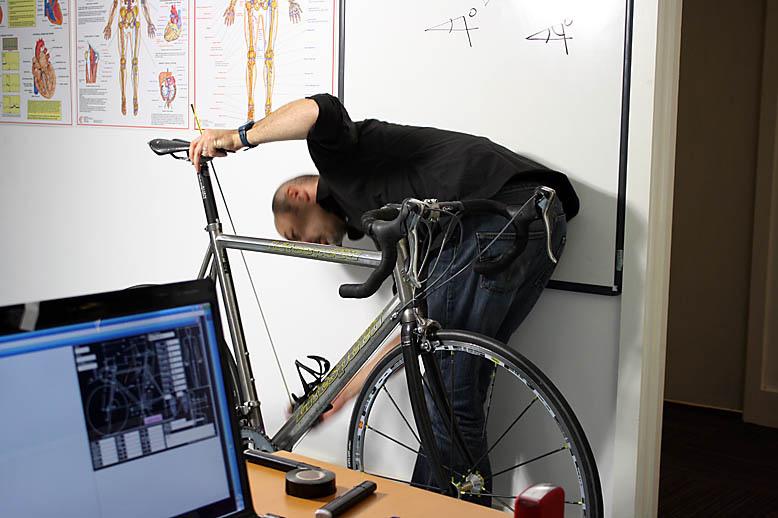
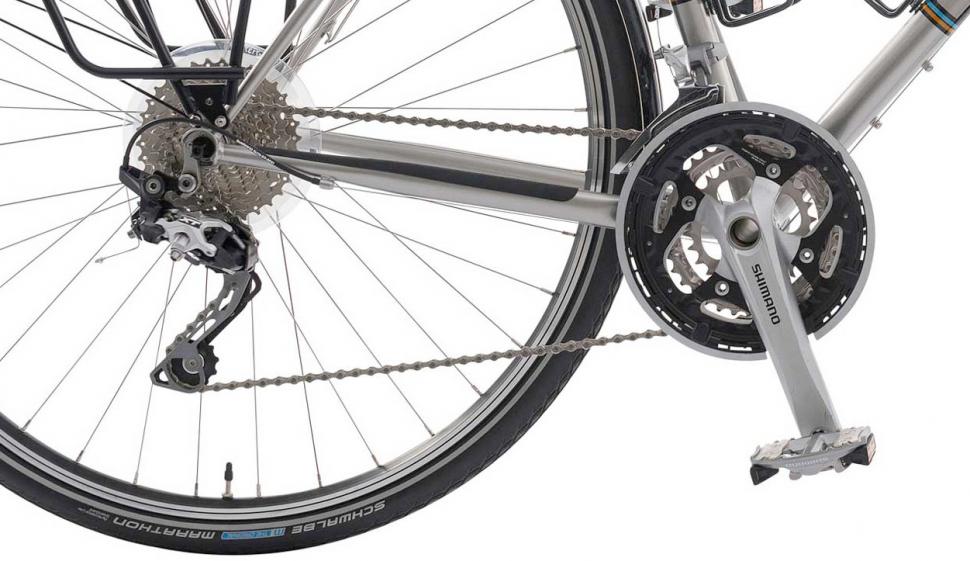
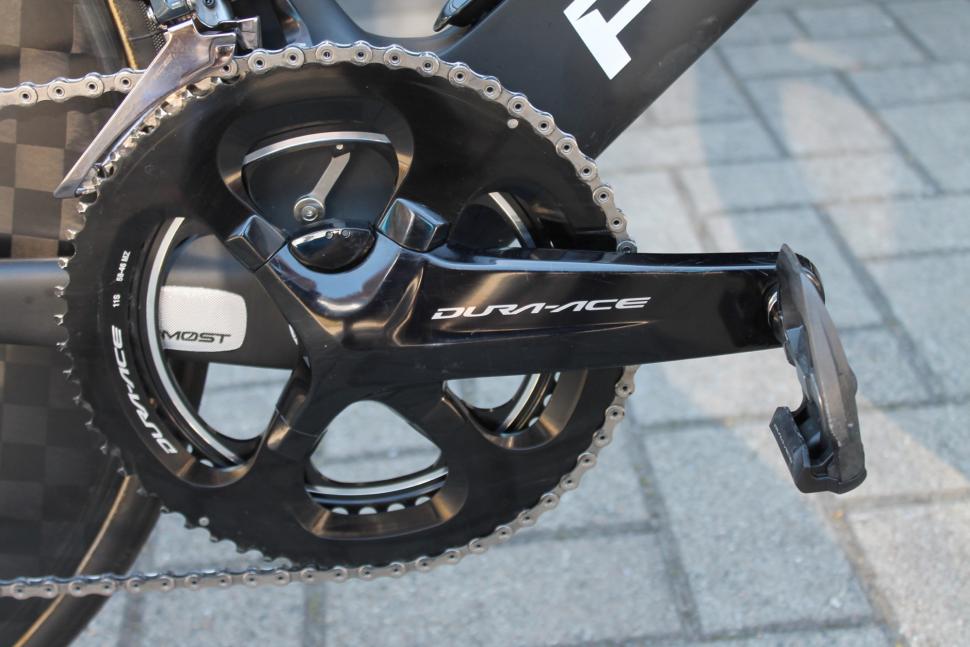

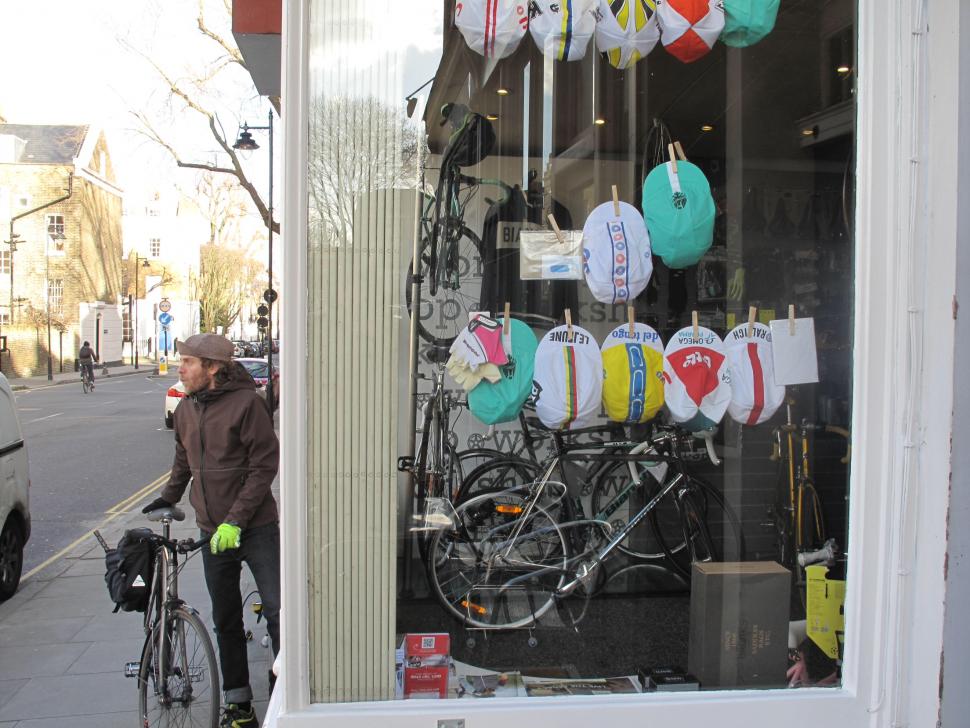



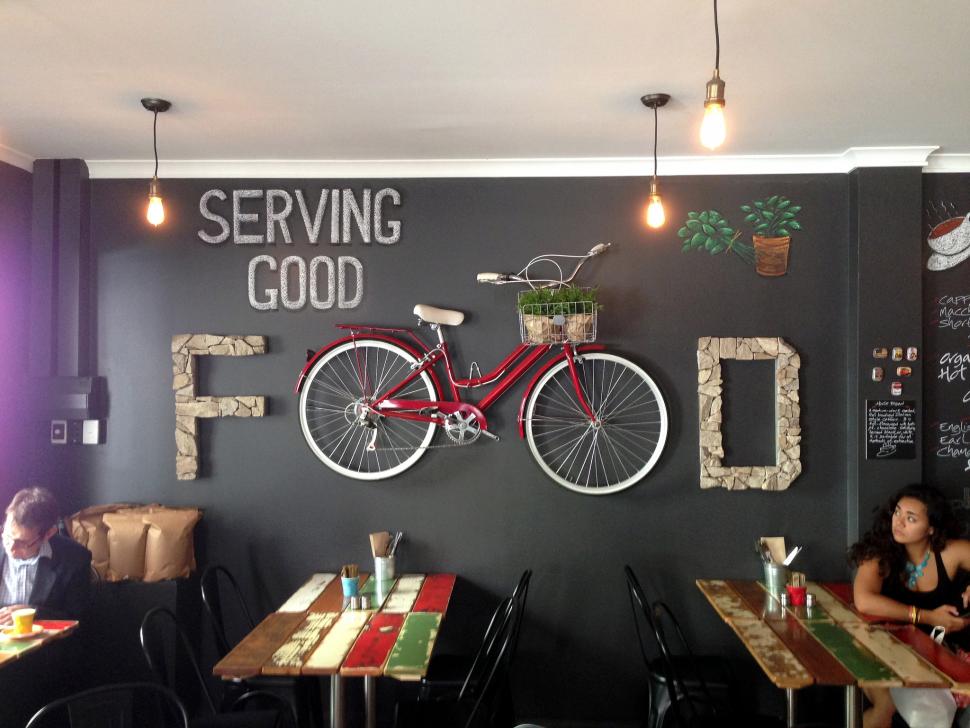
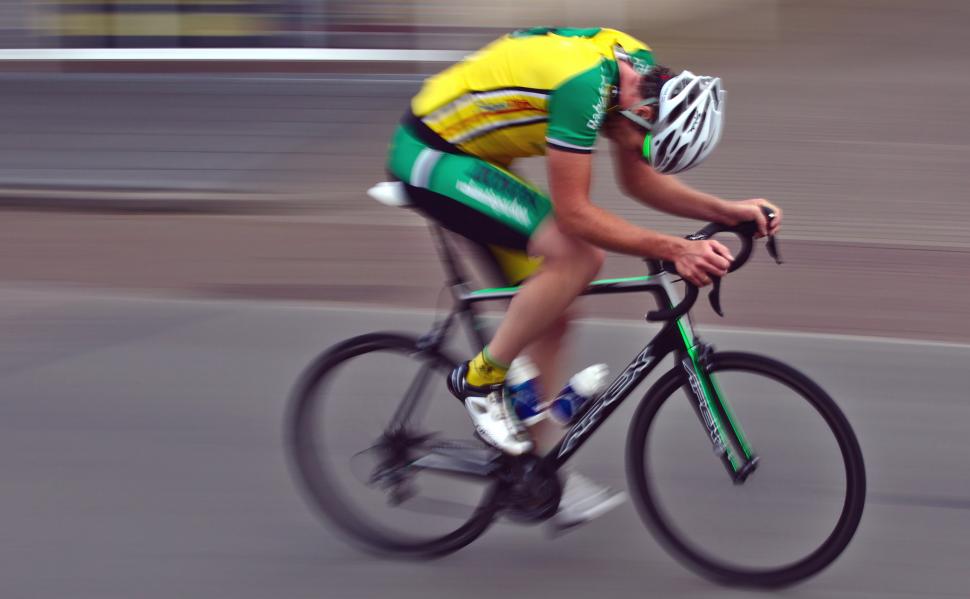
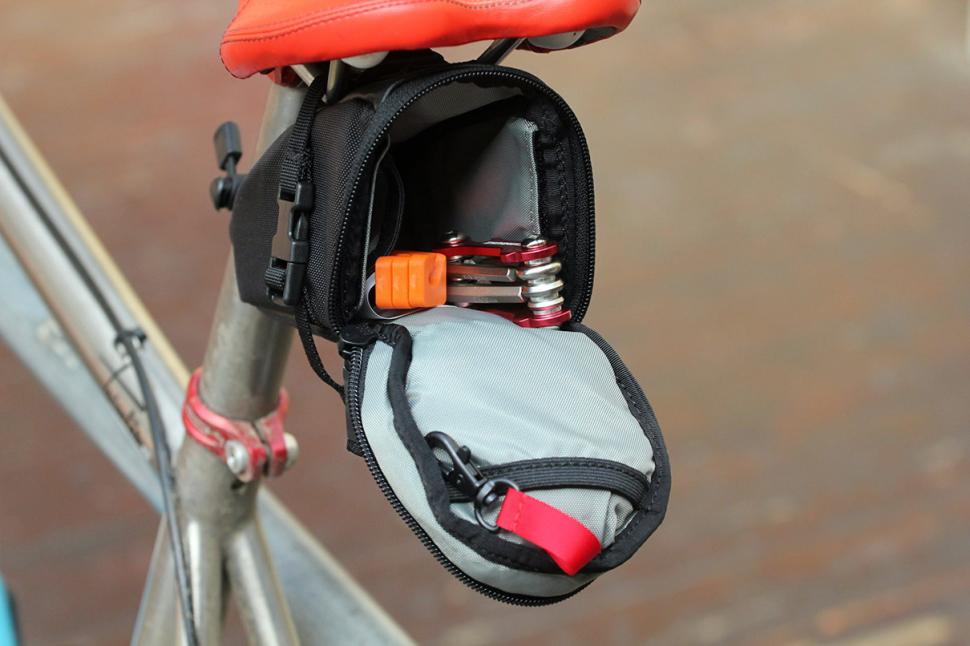
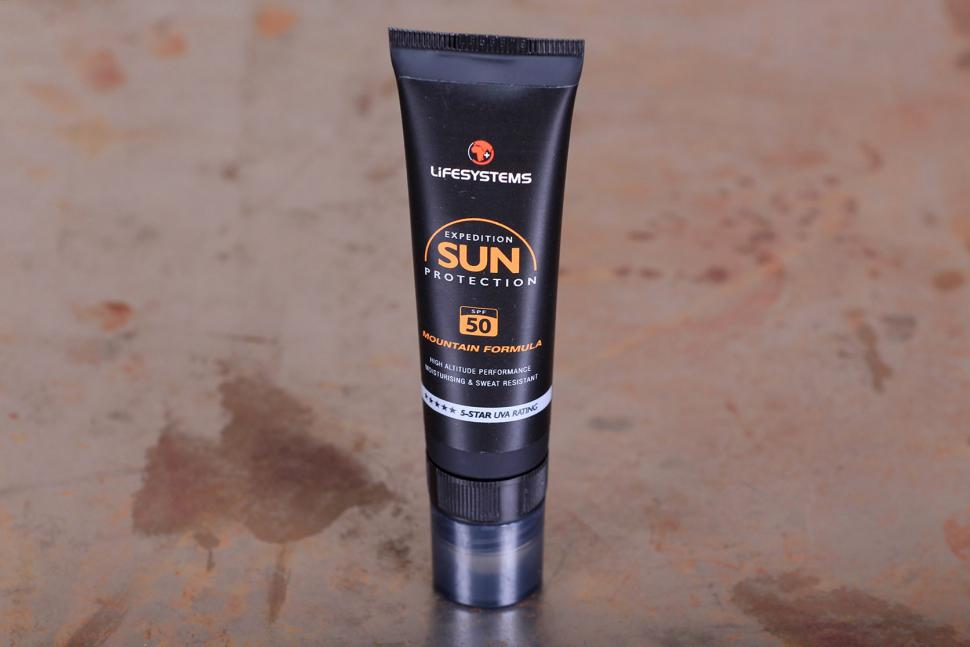
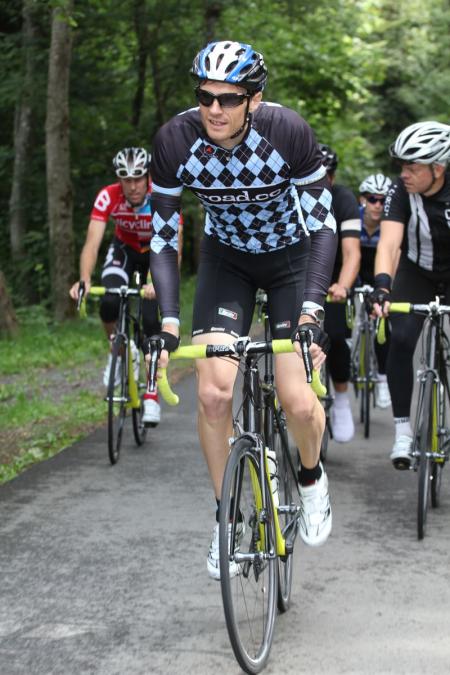
Add new comment
68 comments
"the most useful rule of thumb is that your knee should be 25-35° from straight when the pedal is at the bottom of the stroke"
Maybe I'm not very good at angles but that sounds like too bent a knee (although perhaps OK for complete beginners?). An earlier road.cc article had what I thought was a better rough guide:
"The general consensus on the level of leg extension, is that when your foot is on the pedal and the crank arm is in the six o'clock position the leg should be what is referred to as 'naturally cocked'. To feel what that looks and feels like, sit on the saddle and let your leg hang under its own weight. It will not naturally hang fully locked out (to its maximum length), but instead hold itself in a slightly cocked position. This is the ball park angle you should find the leg in, when the foot is on the pedal, with the crank arm in the six o'clock position."
Not letting your loved ones know where you're going before you head out. Doh!
I tell my cat, Floyd, but I don't really think he's that arsed.
I don't always know!
Why?
Given the rate of serious injuries and deaths I would hope that if you go out for a drink at the weekend/go for a walk/drive out somewhere you'll let your loved ones know where you are going, you know, just in case?
You've fallen into the classic 'cycling is dangerous' thought process, it really isn't. I haven't told anyone where I'm going since I was a kid when cycling unless it was a casual reference. Unless I need my wallet for something specific like going to the shops I never carry ID with me, it's usually the front door key, a couple of quid and some tools/spares. then again I go out plenty of times with just the front door key and nowt else, no spares, nothing, back in the 70s we'd walk to the park about 1.5 miles away when we were 8/9 years of age, occasionally we might have told our parents were we were going.
Maybe it's a generational thing
Need to add
14. Underinflated tyres
Keeping tyres inflated to the correct pressure makes cycling easier due to less road drag. It also helps guard against punctures, both from sharp stuff and "snakebites" where the tube is pinched against the rim & tyre.
15. Unlubed chains and mechs
Keeping chains and mechs lubricated helps protect against wear and makes pedalling and gear changing easier than when they become a red rusty squeaking mess
Need to add
14. Underinflated tyres
Keeping tyres inflated to the correct pressure makes cycling easier due to less road drag. It also helps guard against punctures, both from sharp stuff and "snakebites" where the tube is pinched against the rim & tyre.
[/quote]
or over inflated tyres, meaning the ride is way harsher than it needs to be and they have less grip.
or over lubed chains, or putting on the next bit of lube before cleaning off the old stuff - either way resulting in dirt sticking to everything and ending up with the the inability to see any of the drivetrain as a result of it all being covered in a black gungy grinding paste.
17: Ignoring people who have been there, done that.
16: changing tube too fast after a puncture and getting a blowout shortly after.
It can be done as fast as you like as long as the offending item that caused the puncture is removed the from the tyre before the new innertube is inserted.
Nope. Blowouts happen when you're generally annoyed at life and forget to check that the innertube lies completely within the tyre beads before pumping it. If you're not enough of a boy scout to have packed an extra tyre (that's about 99% of us), then you're soon going to find yourself wistfully looking back at the time whe you were only dealing with having to change a tube in the rain. Oh, the good life.
I don't think I've ever changed a tube in the dry. I'm convinced that rainclouds are dark because of all the P-fairies flying around in them, so I try not to ride under such a cloud if at all possible.
15: Buying the full SKY kit as an essential part of cycling.
Biggest mistake thinking that buying "Aero Bike" will make you significantly faster
Comfort = Speed
I'll never get the clothes thing. I've been riding in just bib shorts and a t-shirt for the last couple of months and I still see people cycling dressed like it's the middle of winter.
That's becaus bar a couple of days it's been bloody cold. Hottest day of the year and I left the arm warmers off, kept the Gabba on mind...
16. Smiling and nodding and waving at every cylist they pass. How much energy are they wasting.
17. Not looking at the bike manufacturer or groupset before deeming their fellow cyclist good enough to talk to.
Oooh, you grumpy git I don't wave, smile and nod at every cyclist. Sometimes I only wave and nod. After wiping the snot from nose and attempting to look as fresh as a daisy, of course.
I don't wave, smile and nod at every cyclist. Sometimes I only wave and nod. After wiping the snot from nose and attempting to look as fresh as a daisy, of course.
The clothing thing probably puts people off the most - it's a huge leap to go skintight, with no underwear.
Thats what brought me to it!
Made the mistake of eating too near a big climb earlier on the year. Total brain fade that saw me literally thinking I was going to throw up after I hit the bottom (20% at first) hard and then just couldn't get the heart rate in check for the shallower part. Had to get off and calm down for 5 minutes. Won't make that mistake again.
I did think it was an urban myth but I actually saw someone in Leeds riding with helmet on backwards the other day.
This makes no sense.
The bike shop in my town is run by a bunch of nice people but they're pretty unprofessional when it comes to booking stuff in & giving you any sort of estimate as to when something will be fixed.
Because of this I learned how to do all maintenance myself from books/videos and have benefited knowledge wise and financially.
I don't buy into the support your local business thing when they have a limited range of stuff often from a single manufacturer at ridiculously high prices.
Tell me about it. My LBS is usually 30% more expensive than online and I can't shop local at such differences.
That's your experience but this is still good advice for beginners. Many bike shops will be better organised, hold a good choice of products and be proactive and supportive.
My LBS staff treat regular and casual customers equally well. They get LEJOG riders who turn up just before closing in need of an urgent repair, someone will stay late to get it done. It's an attitude that has made it very popular (and busy). I do buy some stuff online such as chains & cassettes that I fit myself but try to support the shop as often as a can.
Yep. I used to believe in the LBS aaproach because it worked when I was a kid. So when a new LBS opened in town I went on down there keen to encourage them. As it happens I'd just got back from hols where my son had been tasked with putting my pedals back on after they were removed to make it easier to get all the bikes on the bike rack. He'd managed to line it up wrong then spanner it in and messed up the threads. So I actually needed a new chainset and thought I'd go 105 and very simple but different Shimano BB.
The price of the chainset was a lot more than online so asked about a discount. Nothing doing. I showed him the online price I didn't expect him to match it but perhaps make an effort. His response was to claim that half the stuff online was counterfeit and his was genuine. Ok I thought, well maybe he will throw fitting it in with the price and take the edge off. That's when he sucked hard on his teeth then gave me a load of old larup about facing the BB shell and special tooling and yadda yadda yadda. The upshot was a quote of £50 to fit. Total was just under £200.
So I went home bought the chainset and an external BB for under £100. Paid a tenner for a bb tool and fitted it all myself in less than half an hour.
I just couldn't get over what a poor businessman that guy was. He turned me from a would be willing and enthusiatic customer ready to pay that little extra for the LBS service and advice into a downright - hope he goes out of business and doesn't rip off too many cyclists before he does so kind of guy.
LBS are not there to give the best offer on the market. But if you plan your Sunday ride on Saturday morning and find that somthing is broken or needs to be replaced this is when they come in handy!
Mine really does have a very broad amount of road bike spare parts on offer even it is not a specialized road bike shop. Therefore sometimes I even skip the online shop to support them, since I want them to stay
It makes perfect sense IF the local bike shop (or even the next to local one) is a good one. No-one should be expected to prop up businesses that aren't good enough but we'd all be worse off without good local bike shops.
And that includes some, though sadly perhaps not all, branches of Evans.
Though never, in my experience, Halfords
Eating wrongly. I remember 30 years ago when I started riding as an adult. I'd been slowly increasing mileage week by week. I knew about drinking and took bottles. Then the longest ride to date into an area I didn't know quite as well as I thought. My first bonk, before Id even heard the term. I just wanted to get off and cry. Eventually found a little store. A couple Cokes and a couple of Mars bars saved the day.
My advise to any newbies. As you build up towards rides of 2 hours plus either head where you'll be able to buy grub but in reality stick a couple of muselli bars/bananas in your pockets.
That first bonk was very unsettling.
My advice is to always carry one of those small packs of dextrose/glucose tablets. They don't weigh much and last for ages unless they get damp. If you run out of steam, crunching a few of those will usually get you home.
Everyone remembers their first bonk.
Pages